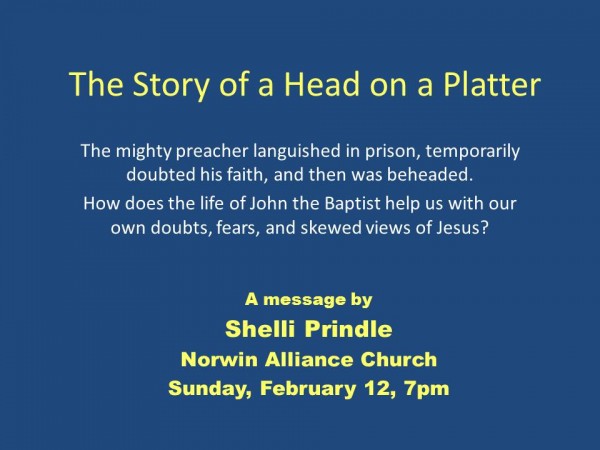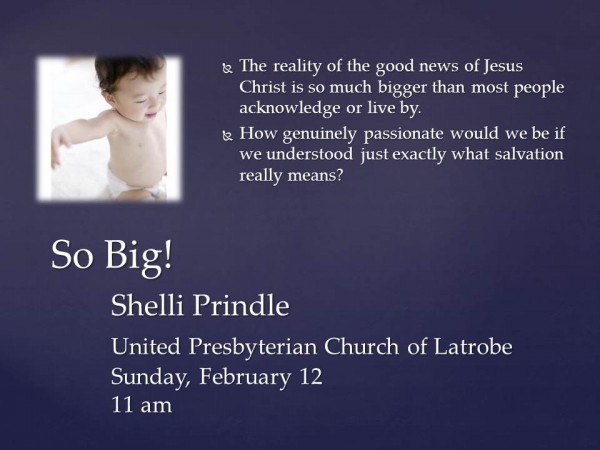By faith Noah, when warned about things not yet seen, in holy fear built an ark to save his family. By his faith he condemned the world and became heir of the righteousness that comes by faith. – Hebrews 11:7 (NIV)
Faith is defined for us in Hebrews 11:1 (NIV) as “being sure of what we hope for and certain of what we do not see.” God then goes on to give us many examples of men and women of history who lived by faith. One particular case is that of Noah. Because he is such a well-known biblical figure – and because his life so concisely demonstrates the concept of “faith without works is dead” – we will explore his experience more closely.
First, understand that our culture’s typical rendition of Noah’s ark is inaccurate. Often, we are shown pictures of a small, wooden boat floating easily on calm, blue waters. A few giraffes or elephants may have their smiling heads popping out the top of the ark. Sometimes Noah and his wife are pictured waving contentedly.
In contrast, the actual ark that God instructed Noah to build was 450 feet long by 75 feet wide by 45 feet high. Nearly five times as long as the Santa Maria of Columbus’ voyage and over half the length of the Titanic, the ark was huge and had three decks. Rather than animals sailing along in a fairytale environment, the historical scene at the outset was horrifying. When the rain actually started to fall and the waters rose, I am convinced myriad people began to run for high places, climb trees, and trek up hills with their children. Stunned at the fulfillment of God’s prophetic words to Noah, so many godless people now found themselves face to face with judgment and death. As the ark tossed on the rising waters, no doubt humans were screaming as the waves engulfed them. This was a scene of horror for those outside the formidable boat. We must keep the reality of the event in mind as we continue on in our discussion of faith and works.
After God defines faith in Hebrews 11:1, He explains the working of Noah’s own faith in Hebrews 11:7 (NIV), “By faith Noah, when warned about things not yet seen, in holy fear built an ark to save his family. By his faith he condemned the world and became heir of the righteousness that comes by faith.” Clearly, God warned Noah about things Noah could not see with human eyes. God said in Genesis 6:17 (NIV), “I am going to bring floodwaters on the earth to destroy all life under the heavens, every creature that has the breath of life in it. Everything on earth will perish.” This had to be difficult for Noah to comprehend, as he had never seen a flood before, and life as people then knew it had never been interrupted with sudden, deadly disaster. Yet, with sight unseen, Noah took God at His Word. Noah was warned, and he responded with holy fear. He thought deeply, was circumspect, and considered most seriously the promises and warnings of His Lord. Though the concept of a deadly, colossal flood was foreign to Noah, his faith in God was greater than his unfamiliarity with promised, future events.
Noah’s response of faith was one of action. He believed God, and so he “built an ark to save his family” (Hebrews 11:7, NIV). Building an ark of wood of this great magnitude was no easy undertaking in a world without diesel engines or readily available machinery. Working for perhaps 50-75 years, Noah, his family, and any other people he employed continued the immense undertaking of constructing an ark with three decks and all components necessary to house animal and human life. Under the sun by day and moon by night, the labor went on. Trees were chopped down, and cut, and formed into properly fitting boards. Rooms were constructed, and the boat was covered with pitch inside and out. Day after day, physical labor took place as an ark was formed. Noah’s faith resulted in the work of his hands. An ark would be the end result.
If Noah had not responded with action, his family would have perished in the flood as all other families did. God’s Word went to Noah’s heart, and Noah’s heart responded with action. Quite literally, Noah’s faith without the corresponding works would have been death. The waters would have taken him. How much clearer could the picture be of “faith without works is dead”? Noah’s spoken belief in the coming flood meant nothing unless that belief resulted in the work of his hands and life.
The concept of Noah’s genuine faith becomes even more important as we realize the connection Jesus Christ made between Noah’s day and the end times. Listen carefully to Matthew 24:36-42 (NIV):
-
No one knows about that day or hour, not even the angels in heaven, nor the Son, but only the Father. As it was in the days of Noah, so it will be at the coming of the Son of Man. For in the days before the flood, people were eating and drinking, marrying and giving in marriage, up to the day Noah entered the ark; and they knew nothing about what would happen until the flood came and took them all away. That is how it will be at the coming of the Son of Man. Two men will be in the field; one will be taken and the other left. Two women will be grinding with a hand mill; one will be taken and the other left. Therefore, keep watch, because you do not know on what day your Lord will come.
Wow! Jesus Himself parallels the end of time to the days of the flood. He indicates that back in Noah’s time, people just lived life with no thought for coming judgment. They ignored Noah, the Lord’s “preacher of righteousness” (II Peter 2:5, NIV). Despite God’s Word being proclaimed by Noah, people just kept going about their daily business with no concern for God’s reality. Not until the flood hit and the ark’s door was securely closed did people truly believe God’s warning and promise. But it was far too late.
Similarly today, most people get up each day and go through the routine of life without real faith in the warning and promises of God. People brush their teeth, go to work, watch movies, celebrate birthdays, eat dinners and desserts, socialize, and care for so many possessions; and they do not consider God’s sure Word. They live as if life will always go on as it does, despite the corruption of the world and its accompanying deep-seated despair. And yet – without further warning – the end will come. Judgment will hit, God will close out this portion of history; the door of salvation will be shut. As judgment was by water the first time (In Noah’s day), so it will be by fire the second and final time (II Peter 3:3-7, NIV).
The question is, “Are you building your ark?” In other words, is your faith in God resulting in a life that is regularly, securely, and tangibly built on God’s Word? We cannot just say we believe; we must have belief that results in action, for only that kind of belief is real! Had Noah stood with arms crossed and said, “I believe the flood is coming,” but never actually started chopping down trees to build the boat, he would have perished in the waters. And we, too, will die in judgment if we only claim to have faith but do not demonstrate its genuine nature by the accompanying action.
It’s time to build the ark of safety! It’s time to demonstrate the reality of our faith by actually obeying the Word we claim to believe. We need to love unconditionally, serve without jealousy, stop gossiping, cease envying and lusting, share the Gospel in ways sincere and passionate, and shine the light of Jesus in the darkness of this world. We need to get our hands dirty and see some sweat drops pour down our faces as we work out this faith we claim to have.
Remember, Noah’s belief in God had to result in his building of the ark of safety. So, too, our faith must result in the building of our “ark.” If we truly believe, we will live out this life of holiness to God. The world will see our ark as we build it. They many mock us and look at us as if we are crazy, but we must build it in front of them. For, “Faith without works is dead” (James 2:26, KJV).








